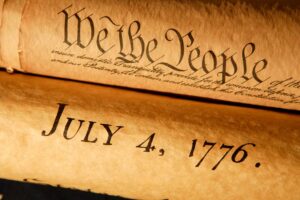Understanding the value of an estate’s contents is a crucial step in estate settlement. This is where a personal property estate appraisal comes into play. Let’s break down what it is and why it’s important.
What is a Personal Property Estate Appraisal?
A personal property estate appraisal is a professional assessment of the value of tangible assets within an estate. This includes items such as furniture, art, collectibles, jewelry, vehicles, and household goods. Unlike real estate appraisals, which focus on the value of land and buildings, personal property appraisals deal with the movable possessions of the deceased.
Watch: Certified appraiser Ray Nugent explains how personal property estate appraisals work — and why they matter for IRS, probate, and more.
The accredited appraisers at ValuePros produce certified appraisal reports that meet all USPAP (Uniform Standards of Professional Appraisal Practice) standards. The IRS requires these standards for Estate Tax filings. This means the appraisal is conducted with a high level of professionalism and accuracy, ensuring a reliable valuation.
Why is a Personal Property Estate Appraisal Important?
There are several reasons why an estate might need a personal property appraisal:
- Estate Tax Filing: As mentioned, the IRS requires appraisals that meet USPAP standards for estate tax purposes. An accurate appraisal ensures compliance and helps prevent potential issues with tax authorities.
- Fair Distribution of Assets: When dividing an estate among beneficiaries, an appraisal provides an objective basis for determining the value of each item. This helps prevent disputes and ensures a fair distribution.
- Sale of Assets: If the estate needs to sell personal property, an appraisal provides a realistic market value, helping to determine a fair selling price.
- Legal Requirements: Courts and fiduciaries often require certified appraisals for legal proceedings related to estates.

What Does the Appraisal Process Involve?
The appraisal process typically involves the following steps:
- On-site Examination: Appraisers visit the location of the personal property to examine and document each item. According to, ValuePros appraisers use a hand-held device with a mobile application to organize item images and descriptions. This ensures efficiency and accuracy.
- Item Identification: Each item is identified and described in detail. This includes noting any unique characteristics, conditions, and provenance.
- Market Research: Appraisers research the market value of comparable items. They may look at recent sales data from online markets, estate sales, auction houses, and other sources.
- Valuation: Based on their examination and research, appraisers determine the fair market value of each item.
- Report Production: ValuePros prepares a detailed appraisal report that includes item descriptions, photographs, market data, and value conclusions. Within 15-30 days of completing the appraisal examination, ValuePros provides the report in PDF format.
Choosing a Qualified Appraiser
It’s crucial to choose a qualified and accredited appraiser for an estate appraisal. Look for appraisers who are familiar with USPAP standards and have experience in appraising the type of property in the estate. ValuePros, for instance, has accredited IRS-qualified appraisers who produce hundreds of reports for the IRS annually, demonstrating their long-standing experience and expertise.
Conclusion
A personal property estate appraisal is an essential service for estate settlement. It provides an accurate and unbiased valuation of tangible assets, ensuring compliance with legal and tax requirements, and facilitating a fair distribution of property. When dealing with an estate, seeking the services of a qualified appraiser is a wise decision.
Need an estate appraisal?
Call us toll-free at (888) 353-7152 or visit valuepros.com to schedule a consultation.








